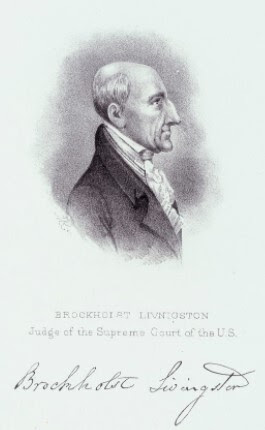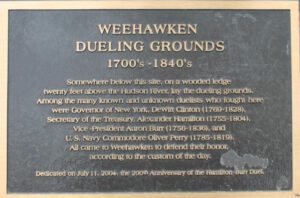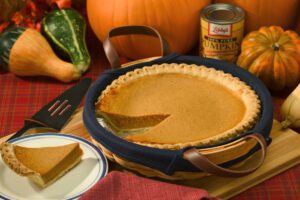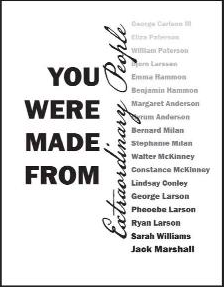27 Nov Genealogist for Hire- November 27, 2021
Contents
- 1 We had the opportunity to see “Hamilton” and that reminded me of a duel in our own family tree.
- 2 What are the roots of Black Friday?
- 3
- 4
- 5 Some claim that eating pumpkin pie can be an act for or against racism. What if you just like the taste?
- 6
- 7
- 8 Great Holiday gifts from Dancestors
- 9
- 10 Still need a stocking stuffer for Christmas?
 We had the opportunity to see “Hamilton” and that reminded me of a duel in our own family tree.
We had the opportunity to see “Hamilton” and that reminded me of a duel in our own family tree.
In May of 1798, Brockholst Livingston (above), a Republican, insulted James Jones, a Federalist (like Alexander Hamilton) in an anonymous newspaper article. Jones responded by first caning Livingston and then trying to wring his nose, which prompted a discussion of “just how much of Livingston’s nose had been grabbed.” The confrontation led to a duel at the Weehawken Dueling Grounds (where Alexander Hamilton met his fate five years later). The newspapers of the day reported that “the men fired simultaneously, and Jones received a ball to his groin, which opened the main artery and resulted in his bleeding to death within minutes.”
In a conversation afterward, General George Washington was asked: “if he knew Mr. Jones, who was recently killed in a duel with Mr. Livingston.” Washington replied, “I believe I have seen him, but I was never on intimate terms with him.’ ‘They say that the shot he fired at his opponent had grazed his nose. How could he miss it?”
James Jones was my wife’s four times Great Uncle. Brockholst Livingston was James Jones’ sister-in-law Margaret Livingston Jones’ first cousin. Margaret’s father, Philip, signed the Declaration of Independence. Philip’s brother and Brockholst’s father William signed the US Constitution.
Coincidentally, James’ older brother was John Jones, the father of American surgery, and George Washington, and Benjamin Franklin’s physician.
 What are the roots of Black Friday?
What are the roots of Black Friday?
In looking at the early uses of the term, references was used as Friday was often the days of public hangings and a term used by the opposition (Daniel Webster above) when bills were passed on Friday, as condemnation for doing something so poor right before the weekend. I guess you could apply that description to how some shoppers behave on Black Friday.
For the most part, anything bad that happened on a Friday was given the name of Black Friday. Below is a link of 22 bad things in history that happened on a Friday. I wonder if more bad things actually happened on Tuesday?
https://en.wikipedia.org/wiki/Black_Friday
 Some claim that eating pumpkin pie can be an act for or against racism. What if you just like the taste?
Some claim that eating pumpkin pie can be an act for or against racism. What if you just like the taste?
The pumpkin is native to the continent of North America. The pumpkin was an early export to France, and after that to Tudor England, the flesh of the “pompion” was quickly accepted as pie filler. As a result, people could find pumpkin pie recipes in English cookbooks during the seventeenth century, such as Hannah Woolley’s The Gentlewoman’s Companion (1675). Pumpkin “pies” made by early American colonists were more likely to be a savory soup made and served in a pumpkin than a sweet custard in a crust.
It was not until the early nineteenth century that the recipes in Canadian and American cookbooks or pumpkin pie became a common addition to the Thanksgiving dinner. The Pilgrims brought the pumpkin pie back to New England, while the English cooking method took a different course. In the 19th century, the English prepared pumpkin pie by stuffing it with apples, spices, and sugar and then baking it whole. In the United States after the Civil War, the pumpkin pie was resisted in southern states as a symbol of Yankee culture imposed on the south, where there was no tradition of eating pumpkin pie. Many southern cooks instead made sweet potato pie or added bourbon and pecans to give a southern touch.
Some folks think eating or not eating pumpkin pie is an act of unintentional racism. I suspect it is more about it being a Thanksgiving comfort food. I can only hope that red velvet cake does not have a controversial past!
Great Holiday gifts from Dancestors
Click on the red button below to get to our website, go to the “shop” tab, and you can see our custom-made by Christy collection of ancestor prints that include the names and autographs of your ancestors.
 Still need a stocking stuffer for Christmas?
Still need a stocking stuffer for Christmas?
One of my kids gave me StoryWorth as a gift, and I have become a fan. I have since given the gift to my own mom. My clients are supportive of capturing their family legacy but struggle to gather their own stories. Here is an inexpensive way to help them capture and preserve excerpts to their story. If you sign up, please enter DancestorsGenealogy as who referred you!







